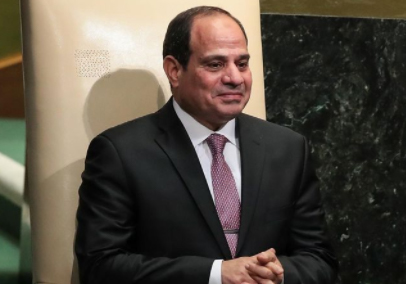
Jun 11, 2018
The ICJ today called on the Egyptian authorities to ensure that the framework on the state of emergency is comprehensively reformed consistent with the country’s international human rights obligations.
The ICJ is particularly concerned that Egypt seems to be returning to the continuous and permanent state of emergency that prevailed in Egypt, uninterrupted, from 1981 until 2012, and that resulted in grave and systematic human rights violations.
Since April 2017, President El- Sisi (photo) declared the state of emergency, renewed it, and then declared a new state of emergency five consecutive times.
“In declaring and renewing exceptional measures under the state of emergency, Egypt has consistently failed to demonstrate that the situation ‘threatens the life of the nation’, the threshold for such measures under international law,” said Said Benarbia, ICJ MENA Director.
Egypt has also failed to set out clear and precise conditions in which the President is allowed to declare the state of emergency and in which measures derogating from human rights under the state of emergency can be declared, the ICJ says.
It has also failed to ensure that each such measure is strictly limited and proportionate to the exigencies of the specific emergency, specify which rights can or cannot be subject to derogation, and notify relevant stakeholders of such derogations, the Geneva-based organization adds.
“Repealing or amending emergency measures to ensure they are limited in time and scope and are not used to curtail rights or to crush dissent, is a prerequisite to establishing and upholding the rule of law in Egypt,” added Benarbia.
The ICJ’s findings and recommendations are based on a position paper published today, in which the ICJ analyses the framework on the state of emergency and assesses its impact on certain aspects of the administration of justice, including those relating to the use of emergency state security courts and to the right to liberty and to fair trial.
Under the framework of the state of emergency, Prime Minister Sherif Ismail issued a decree on No. 2165/2017 through which numerous crimes, including those related to protest, assembly, terrorism and labour law have been placed under the jurisdiction of the emergency state security courts.
These courts have mainly been used to try students, human rights defenders, political activists, union members and those suspected of opposing the government in proceedings that fall short of international standards on fair trial.
“Authorities must abolish the emergency state security courts and ensure that any existing proceedings before them should be either nullified or transferred to the ordinary courts,” said Benarbia.
Contact
Said Benarbia, Director of ICJ’s Middle East and North Africa Programme, t: +41-22-979-3817 ; e: said.benarbia(a)icj.org
Egypt-Return to State of Emergency-Advocacy-Analysis brief-2018-ENG (full memo in English, PDF)
Egypt-State of emergency-News-Press releases-2018-ARA (full story in Arabic, PDF)
Egypt-Return-State-of-Emergency-Advocacy-Analysis-brief-2018-ARA (full memo in Arabic, PDF)
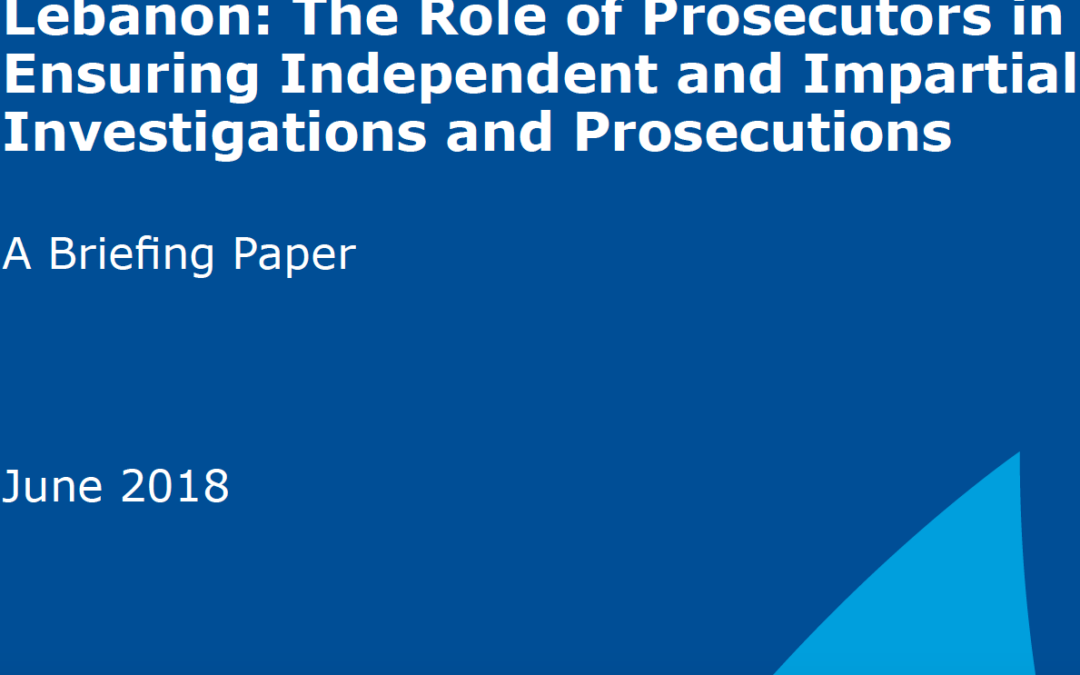
Jun 7, 2018
In a memorandum published today, the ICJ called on the Lebanese authorities to introduce comprehensive legal and institutional reforms with a view to ensuring that the Office of the Public Prosecutor (OPP) is strictly separated from the judiciary and judicial functions.
The reforms must also guarantee that the OPP’s independence and impartiality is fully safeguarded consistent with internationals standards, the ICJ says.
“The structure of the OPP, its role, status and functions are not in compliance with international standards on the independent and impartial functioning of prosecutors,” said Said Benarbia, ICJ MENA Director.
“The Lebanese authorities must ensure that the functions of judges and prosecutors are clearly separated and distinct and that prosecutors are not granted any powers to take decisions of a judicial character, including those relating to renewing police custody and ensuring oversight over police custody’s facilities, periods and conditions,” he added.
In the memorandum, the ICJ also formulates recommendations for amendment and reform of law and practice with a view to ensuring the administration of criminal justice in a manner that respects and protects human rights, due process and the rule of law.
The Code of Criminal Procedure and Decree-Law No. 150/83 on the Organization of the Judiciary do not provide for appropriate safeguards and limitations on internal and external instructions to prosecutors, do not adequately limit the power of the Minister of Justice in relation to the conduct of prosecutions, and, therefore, do not safeguard the real and perceived independence of the prosecution services.
If public faith and confidence in the integrity of the justice system is to be restored, the functional independence of prosecutors must be safeguarded from any undue or improper interference, including those emanating from within the OPP itself.
“The Lebanese authorities must ensure that the executive is prohibited from issuing instructions not to prosecute or requiring prosecution in a specific case,” said Benarbia.
“Any instructions to individual prosecutors regarding the conduct of a prosecution must be in writing, exercised transparently, and take into account established prosecution guidelines and the interests of victims and other interested parties,” he added.
Contact
Rola Assi, Associate Legal Adviser, t: 0096170821670 ; e: rola.assi(a)icj.org
Lebanon-Memo re prosecutors-Advocacy-Analysis Brief-2018-ENG (full memo in English, PDF)
Lebanon-Prosecutors memo launch-News-2018-ARA (full story in Arabic, PDF)
Lebanon-Memo prosecutors-Advocacy-Analysis Brief-2018-ARA (full memo in Arabic, PDF)
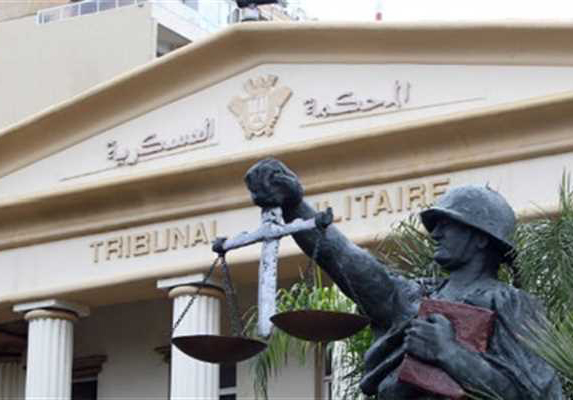
May 29, 2018
In a memorandum published today, the ICJ urged the Lebanese authorities to introduce comprehensive legal reforms to ensure the independence and impartiality of military courts and to restrict their jurisdiction to cases involving members of the military for alleged breaches of military discipline.
The country should transfer the competence of military courts to civilian, ordinary courts in all cases involving civilians and all cases involving human rights violations and non-military offences committed by members of security and armed forces, the ICJ added.
“Lebanese military courts have a long history of prosecuting civilians, including those critical of the military and the government, in trials that fall short of international standards,” said Said Benarbia, ICJ MENA Director.
“Lebanese authorities must prohibit military courts from exercising jurisdiction over civilians, even where the target or victim of the offence is military, as well as over all persons under the age of 18, with no exceptions,” he added.
The ICJ also called for legal and institutional reforms to be introduced with a view to ensuring the independence and impartially of military courts and the fairness of their procedures, including by ensuring that the selection, appointment, transfer and evaluation of military judges are based on transparent procedures and objective criteria, and that any disciplinary action against them is only pursuant to well-defined standards and respectful of all due process guarantees.
In the memorandum, the ICJ formulates recommendations for amending the Code of Military Justice with a view to enhancing due process guarantees, including by providing that individuals convicted by military courts have the right to appeal their conviction and sentence to the civilian courts of the ordinary court system, and that the nature of the review is to be substantive and based both on sufficiency of the evidence and of the law and to allow for due consideration of the nature of the case.
“Limiting the jurisdiction of the military courts and enhancing their independence and impartiality and the fairness of their procedures is required not only to establish and uphold judicial independence, but also to restore public faith and confidence in the integrity of the Lebanese justice system,” said Benarbia.
Contact
Rola Assi, Associate Legal Adviser, ICJ MENA Programme, t: +96170821670 ; e: rola.assi(a)icj.org
Lebanon-Memo re army courts-Advocacy-Analysis Brief-2018-ENG (full memo in English)
Lebanon-military courts memo launch-News-2018-ARA (full story in Arabic)
Lebanon-Memo army courts-Advocacy-Analysis Brief-2018-ARA (full memo in Arabic)
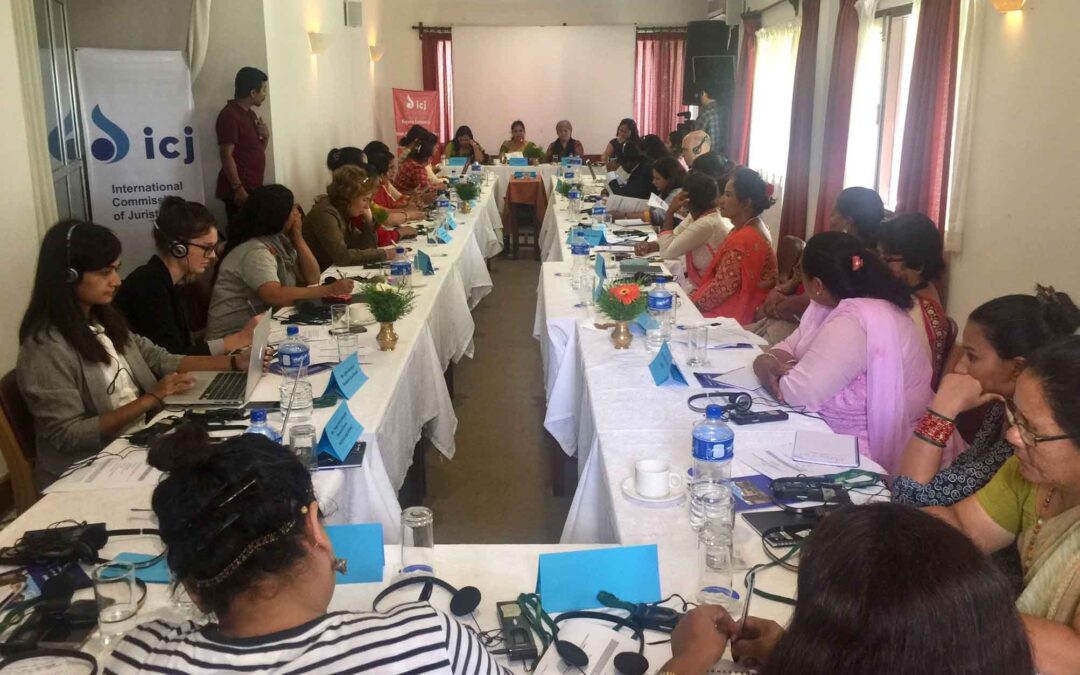
Feb 8, 2018
Today, the ICJ released a new briefing paper concerning its Regional Conference on Women Human Rights Defenders as Political Actors (28-29 August 2017), which brought together women human rights defenders (WHRDs) from all over Nepal who were elected in May 2017.
The conference focused on how newly-elected WHRDs could continue to advance human rights in their new roles as elected officials, with specific attention paid to encouraging equal participation of women in public affairs and furthering their advocacy for human rights.
The attached briefing paper lays out the key points of the conference and offers a set of future actions aimed at supporting WHRDs in their role as political actors pursuing a human rights agenda.
Nepal-WHRD-Advocacy-Analysis brief-2018-ENG (Briefing Paper in PDF)
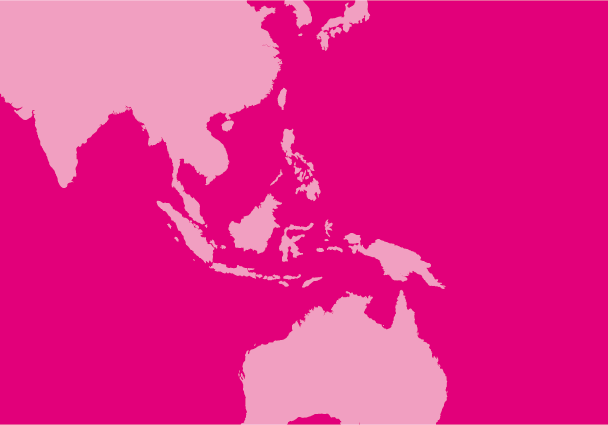
Dec 13, 2017
Today, the ICJ and other human rights groups urged changes to a new law in Lao PDR that would enable violations of freedom of association and other human rights.
The groups sent an open letter to the Lao PDR Government calling for the repeal of or for significant amendments to be made to the Decree on Associations that came into force in Lao PDR in November 2017. A legal brief detailing analysis of the new law was attached to the open letter.
The letter emphasized that repeal or amendments to the new law needed to be part of fundamental reform of the framework of regulation of associations in Lao PDR, in line with international human rights law and standards.
The new law supersedes the 2009 Decree on Associations, which had already included imprecise and overly broad terms leading to arbitrary restrictions on the rights to freedom of association, freedom of opinion and expression and privacy.
“The 2009 law had already imposed restrictions on fundamental freedoms which were clearly in contravention of Lao PDR’s obligations under international human rights law,” said Frederick Rawski, the ICJ’s Regional Director for Asia and the Pacific. “The new law makes things worse.”
In the attached legal brief, the ICJ and other human rights groups analyzed provisions in the decree which arbitrarily restrict or deny fundamental rights by giving government authorities in Lao PDR sweeping powers to, among other things,
- unreasonably control and/or prohibit the formation of associations;
- arbitrarily inspect, monitor and curtail the activities and finances of associations;
- order the dissolution of associations on arbitrary grounds and without right of appeal;
- discipline associations and individual members on arbitrary grounds and
- criminalize unregistered associations and allow for prosecution of their members.
The letter concluded by urging the Lao PDR Government to respect its obligations under international human rights law by removing arbitrary, overbroad and discriminatory elements from its framework of regulation of associations.
Any regulation regime should make clear that individuals are free to form private unincorporated associations without needing to notify or register with the State.
The letter further urged that for associations wishing to acquire legal personality, the law should at most provide for automatic registration upon notification and fulfillment of simple administrative requirements, rather than a system requiring prior permission of State officials.
“The rights to form and participate in associations, to freely express one’s opinions and to lead a private life are fundamental freedoms, which the Lao PDR Government has a duty to protect, promote and fulfill,” said Rawski.
Background
The Decree on Associations, dated 11 August 2017, came into force on 15 November 2017. Pursuant to its article 81, the new law supersedes the Decree on Associations (No. 115 of 2009) dated 29 April 2009 (‘2009 Decree’).
The new law only applies to local non-profit associations (NPAs) and does not govern international non-governmental organizations (INGOs) in Lao PDR, which are instead regulated by the Decree on International Non-Governmental Organizations (INGO) (No. 013 of 2010).
As a party to the International Covenant on Civil and Political Rights (ICCPR), Lao PDR has a legal obligation to respect, protect and guarantee, among others, the rights to privacy (article 17), freedom of opinion and expression (article 19), and freedom of association (article 22), which includes the right to form and join associations, subject only to narrow restrictions.
The ICCPR also requires States to implement necessary legislative, administrative or other measures for effective promotion and protection of these freedoms.
Contact
Frederick Rawski, ICJ Regional Director for Asia and the Pacific (Bangkok), e: frederick.rawski(a)icj.org
Kingsley Abbott, ICJ Senior International Legal Adviser (Bangkok), e: kingsley.abbott(a)icj.org
Lao-Decree Associations-Advocacy-open letters-2017-ENG (open letter + briefing paper, in PDF)









